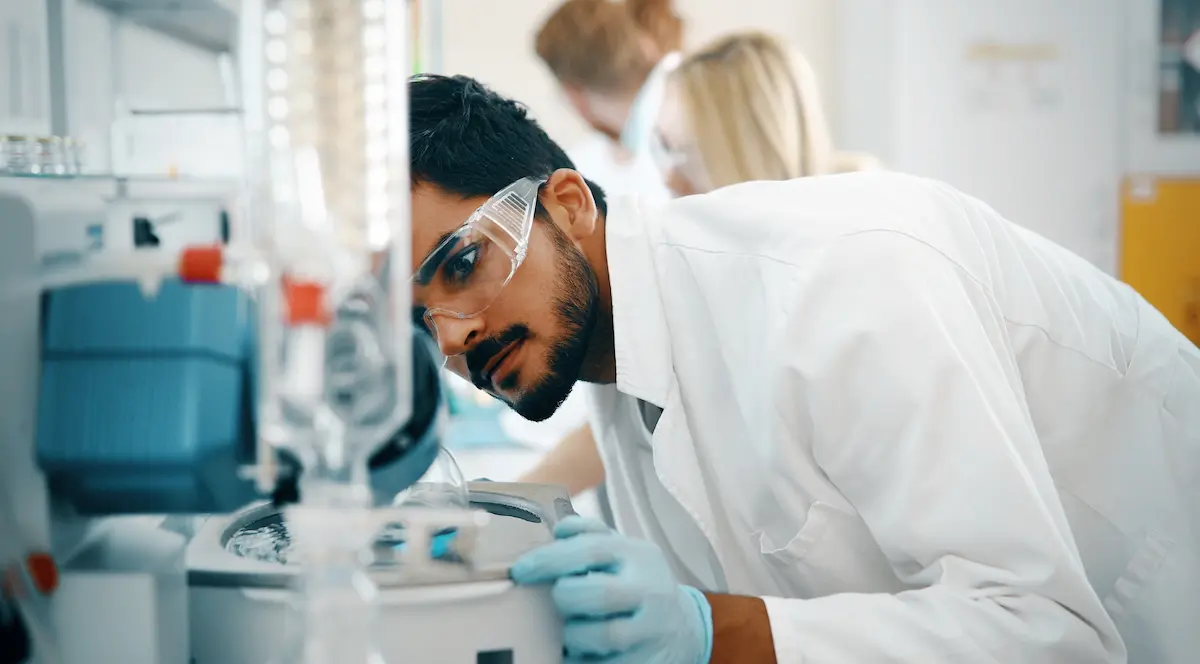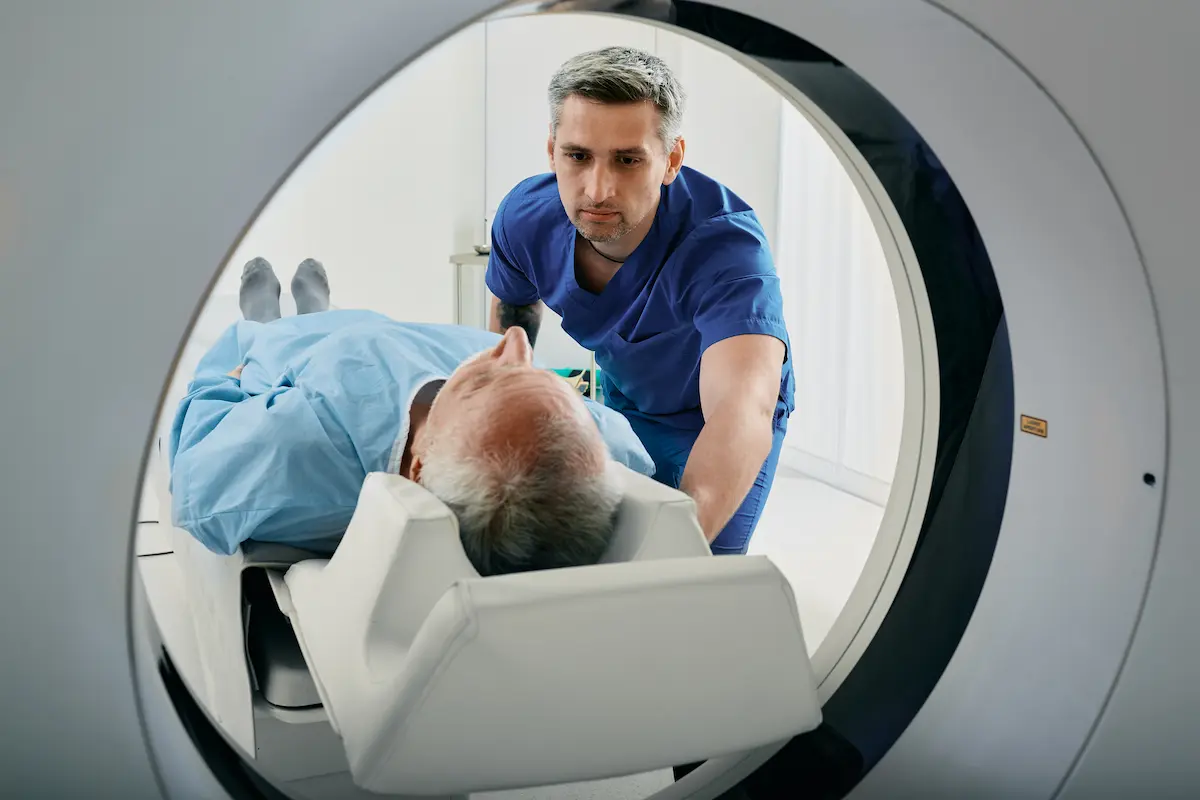Great career options if you’re interested in allied health are pharmacy and dental jobs. Our allied health series has covered several other career options as well, including rehab and therapy, laboratory, and more. Keep reading to learn more about these careers and their education requirements, skills, and work environments.
Pharmacy tech
The role of a pharmacy technician is to assist the pharmacist by dispensing, labeling, and packaging prescribed medications for patients. Once this is completed, the pharmacist will ensure that everything looks correct before the patient receives it (Mayo Clinic College of Medicine and Science, n.d.).
Education requirements
At a minimum, pharmacy techs need to have their high school diploma or a GED with training and work experience. Many individuals interested in becoming a pharmacy tech will choose to also complete an associate’s degree or a certificate program. Students aspiring to become a pharmacy tech will also need to get a certification depending on the state they choose to practice in. To become certified, you need to pass the Pharmacy Technician Certification Exam (PTCE) to practice as a certified pharmacy technician (CPHT) (Mayo Clinic College of Medicine and Science, n.d.).
Skills needed
Skilled pharmacy techs should be able to operate a computer efficiently, be organized, attentive, communicative, and they need to be efficient problem solvers.
Work environment
Pharmacy techs most often work in pharmacies in drug stores and grocery stores, nursing homes, and hospitals (Mayo Clinic College of Medicine and Science, n.d.). Similar to pharmacists, these allied health professionals may sometimes need to work unconventional hours, like nights or weekends.
Pharmacist
These allied health professionals know everything there is to know about medications and drugs. They are responsible for administering prescriptions, vaccines, and health screenings. Pharmacists are also in charge of informing individuals how to safely use and take their medications (Mayo Clinic College of Medicine and Science, n.d.).
Education requirements
First, you will need to complete your bachelor’s degree, specifically you’ll want to consider a bachelor of science (BS) program. Some schools, but not many, offer a pre-pharmacy track, so if you know you want to pursue a pharmaceutical career, this option is best for you. Once you earn your bachelor’s degree, you’ll want to gain hands on experience either as an intern, pharmacy tech, or pharmacy assistant. To get into pharmacy school, you’ll need to pass the Pharmacy College Admission Test (PCAT). After passing the exam and doing thorough research on which school and program is best for you, you’ll need to earn your doctor PharmD degree. Next, you’ll want to consider if you should complete a residency program, as it is not required of pharmacists but can be helpful. The last step is to get your pharmacy license from the National Association of Boards of Pharmacy (NABP). To do this, you need to pass the North American Pharmacy Licensure Examination (NAPLEX), as well as complete the required clinical hours that vary state by state (Weil, 2023).
Skills needed
It’s important that pharmacists be strong communicators, detail oriented, compassionate, and analytical. They should also be able to have managerial skills considering they will often need to supervise the pharmacy techs and assistants that work under them (U.S. Bureau of Labor Statistics, 2023).
Work environment
Pharmacists have the option to work in a variety of settings. These consist of pharmacies in drug stores and grocery stores, hospitals, assisted living facilities, government facilities, and other healthcare facilities (Mayo Clinic College of Medicine and Science, n.d.).
Dental assistant
Along with the career options in the pharmaceutical field, there are also great jobs to consider in dentistry. There are several duties that dental assistants are responsible for when working in the field. They assist dentists during examinations and procedures by sterilizing and administering dental instruments, prepping patients, taking dental impressions, and more (Carrington College, 2019). These allied health professionals play an important role during dental surgeries and procedures because they ensure the area is properly prepped and ready for patients.
Education requirements
Dental assistants first need to obtain their high school diploma or GED to work in this field. Next, they will either need to get an undergraduate certificate or an associate of applied science (AAS) degree in dental assisting. Finally, depending on the state you practice in, you may also have to become certified through the Dental Assisting National Board (DANB) for more hands-on experience and training (Learn.org, n.d.).
Skills needed
To be a successful dental assistant, you need to be able to communicate effectively, efficiently operate a computer, be dexterous, pay attention to detail, and more. Since these healthcare professionals need to keep the instruments clean and orderly, they also need to be organized and cleanly.
Work environment
Dental assistants have a wide variety of work environments that they can choose from. Although most tend to work in private dental offices or group practices, dental assistants can also work in dental manufacturing companies, hospitals, educational institutions, public health facilities, and more (ExploreHealthCareers.org, n.d.).
Dental hygienist
Also referred to as oral hygienists, these allied health professionals are trained to give teeth cleanings, take dental x-rays, administer fluoride treatments, provide patients with oral hygiene instructions, and more (Cleveland Clinic, 2023). Dental hygienists are the allied health professionals who clean and prep your teeth before the dentist comes for the final inspection.
Education requirements
If you’re interested in pursuing a career as a dental hygienist, you’ll first need to graduate from a dental hygiene program that is accredited by the Commission on Dental Accreditation (CODA) (Indeed Editorial Team, 2023). Next, you’ll need to pass the National Board Dental Hygiene Examination (NBDHE), then also pass the clinical board examination that varies from state to state. Finally, you’ll need to obtain a license to practice in the state in which you want to practice (Thompson, 2024).
Skills needed
Similar to a dental assistant, you’ll need to be skilled in dexterity, attention to detail, and communication. You’ll also want to ensure that you are a compassionate person who is able to think critically in the workplace.
Work environment
When you think of dental hygienists, you probably assume that they only work in dentists’ offices, however, this is not always the case. When working as a dental hygienist, you have the option to work in a private dental office, public health clinics, schools, long-term care facilities, hospitals, and more (Pacific University Oregon, n.d.).
We hope this blog taught you more about the great career options you can find in pharmacy and dental work. If you or anyone you know is looking for a career in these related fields, search our open jobs today!
Sources
https://www.bestcolleges.com/healthcare/careers/how-to-become-a-pharmacist/
https://www.bls.gov/ooh/healthcare/pharmacists.htm
https://carrington.edu/blog/what-does-a-dental-assistant-do/
https://learn.org/articles/What_Education_is_Required_to_Become_a_Dental_Assistant.html
https://explorehealthcareers.org/career/dentistry/dental-assistant/
https://my.clevelandclinic.org/health/articles/dental-hygienist
https://www.indeed.com/career-advice/career-development/how-to-become-a-dental-hygienist
https://www.bestcolleges.com/dentistry/dental-hygiene/how-to-become-a-dental-hygienist/




